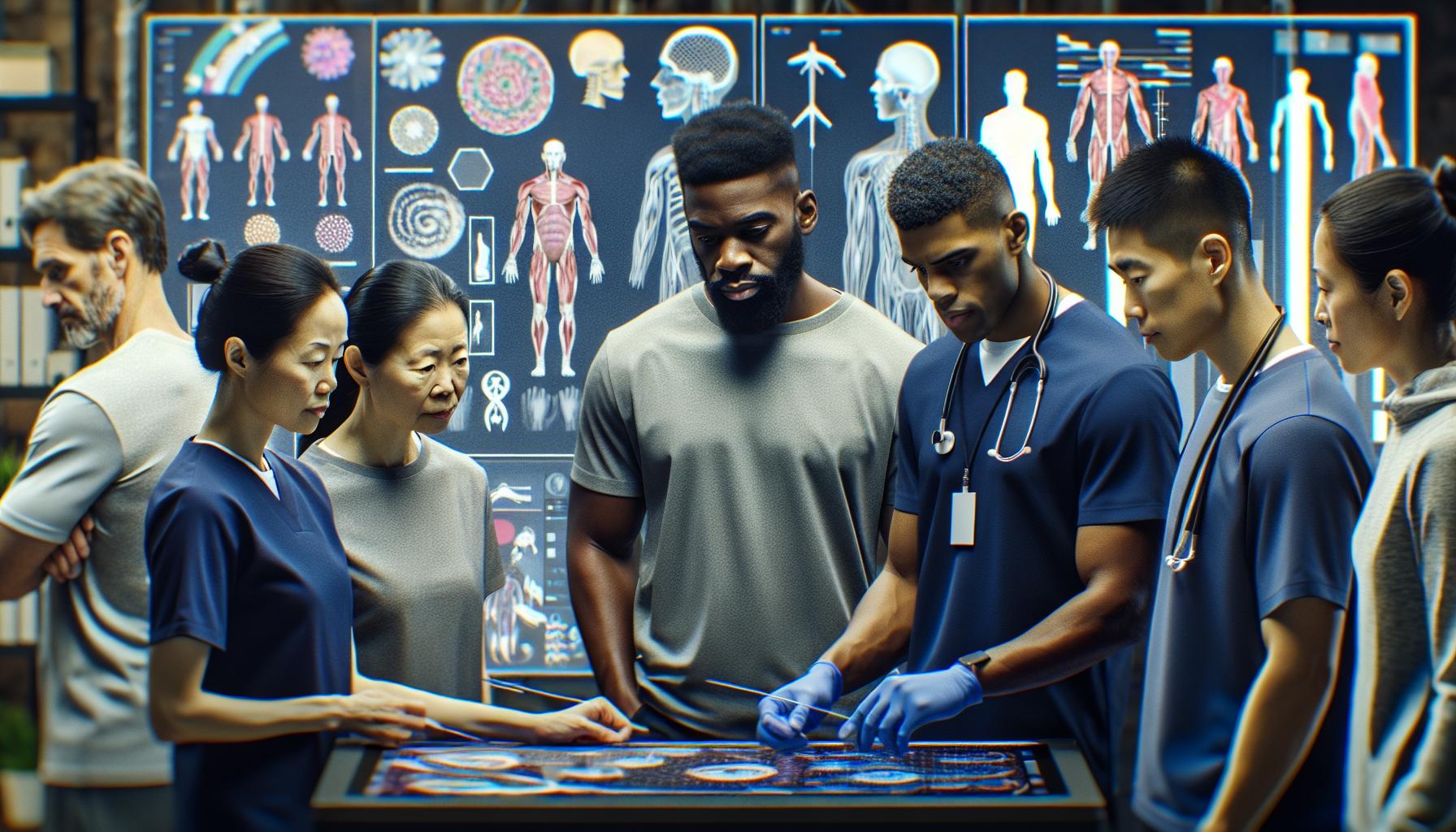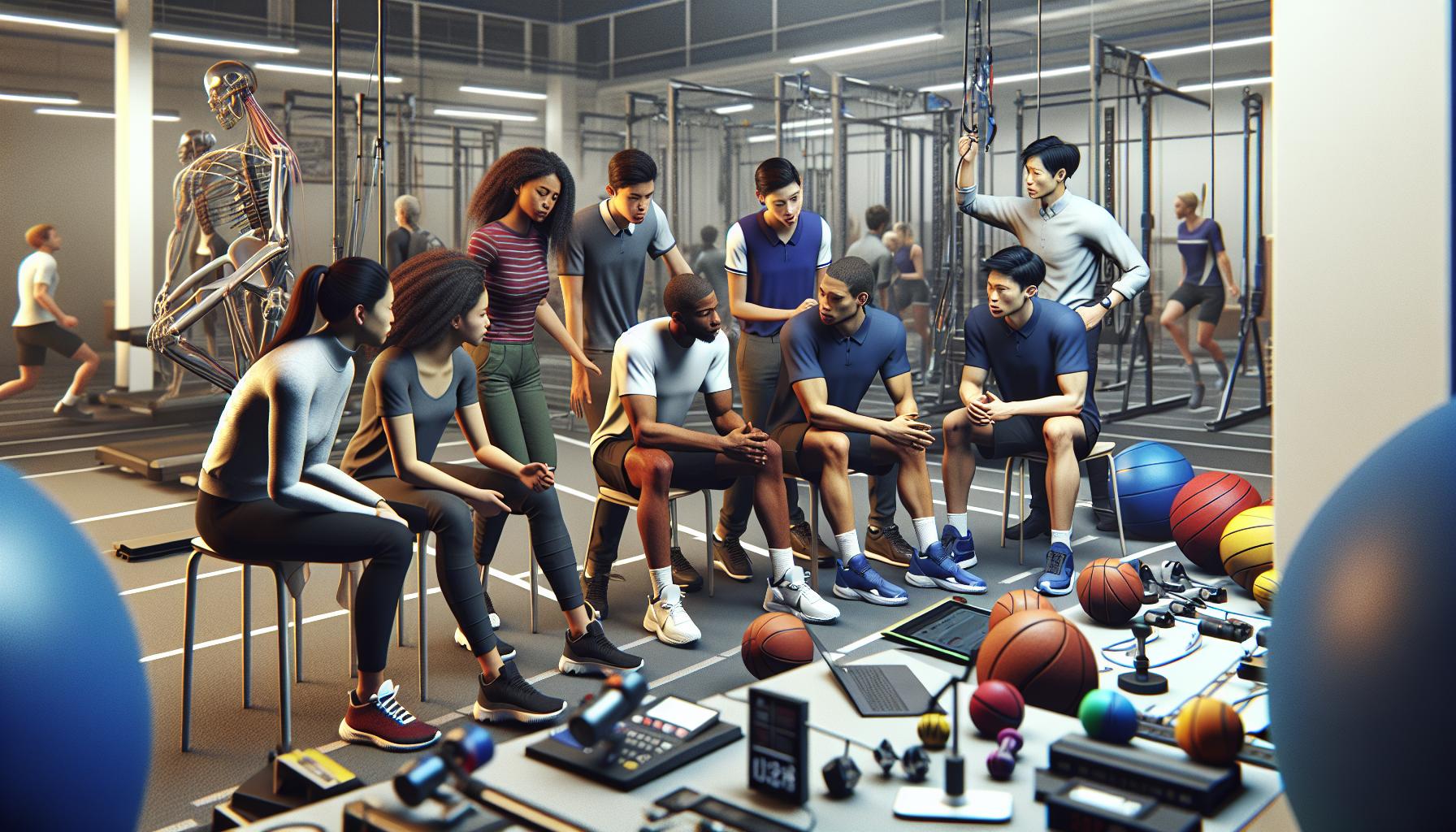Choosing a major can feel like picking a favorite child, especially when it comes to sport science. It’s not just about sweaty gym sessions and endless games; it’s about diving deep into the science of movement, performance, and human potential. Imagine blending your love for sports with cutting-edge research that could change how athletes train and recover. Sounds like a win-win, right?
With a sport science major, students unlock the secrets of biomechanics, exercise physiology, and nutrition. They learn to optimize performance while preventing injuries, and who wouldn’t want to be the hero that keeps athletes on the field? Plus, it’s a field that’s growing faster than a sprinter on race day. So if you’ve got a passion for sports and a curious mind, this major might just be your ticket to a rewarding career that keeps you in the game.
Sport Science Major
Sport science majors study the scientific principles behind human movement and athletic performance. This field integrates multiple disciplines, enhancing understanding of both physical and mental aspects of sports.
Definition And Scope
Sport science encompasses various subfields including biomechanics, exercise physiology, and sports psychology. Biomechanics examines the mechanics of movement, allowing professionals to optimize performance and reduce injury risks. Exercise physiology focuses on how the body responds and adapts to physical activity, providing insights into training methods. Sports psychology addresses the mental factors affecting performance, helping athletes enhance motivation and focus. Overall, a sport science major equips students with a comprehensive knowledge base that supports careers in coaching, athletic training, and rehabilitation.
Importance In Today’s World
In today’s fast-paced society, the demand for expertise in sport science grows significantly. Professionals enhance athletic performance, which is crucial for competitive athletes across various sports. Understanding the science of movement is vital for injury prevention, ensuring the health and longevity of athletes. Moreover, sport science education contributes to public health initiatives by promoting physical activity and wellness among the general population. As fitness trends evolve, sport science becomes increasingly relevant in developing safe, effective training programs tailored to diverse needs.
Core Subjects In Sport Science

Sport science majors cover essential subjects that provide the foundation for understanding human movement and performance.
Anatomy And Physiology
Anatomy and physiology form a crucial part of sport science. This subject allows students to explore the structure of the human body and its functions. Knowledge of muscles, bones, and organ systems influences how athletes perform and recover from injuries. Intensive study in this area helps students understand how physical activity impacts various body systems. Learning about muscle contraction, energy production, and cardiovascular function equips future professionals with skills to optimize training programs. Various teaching methods, including lab work and real-life case studies, enhance comprehension of complex concepts.
Exercise Science
Exercise science delves into the principles and methods behind physical activity. This field examines the body’s responses to exercise and the physiological effects over time. It includes studying cardiovascular fitness, strength training, and flexibility. Assessing performance parameters enables students to develop individualized exercise plans for different populations. Research in exercise science contributes to advancements in methods for enhancing athletic performance and preventing injuries. Practical applications in this subject prepare students for roles in coaching, fitness training, and rehabilitation.
Kinesiology
Kinesiology focuses on the mechanics of body movement. Students analyze movement patterns and the forces involved in athletic performance. Understanding motor skills and coordination helps improve techniques in various sports. Additionally, this subject includes topics such as biomechanics and functional anatomy. Knowledge gained in kinesiology supports the development of training regimens that maximize efficiency and minimize injury risk. Applying these principles aids in creating safe environments for athletes to flourish in their physical pursuits.
Career Opportunities For Graduates

Graduates with a sport science major find diverse career paths in various industries. Their knowledge of human performance and physical activity opens numerous doors.
Athletic Training
Athletic trainers play a vital role in sports settings. They focus on injury prevention, assessment, and rehabilitation. This profession requires skills in emergency response and patient management. Working with athletes at all levels, trainers develop tailored programs that facilitate recovery. Many trainers pursue certification through organizations like the Board of Certification for the Athletic Trainer. In various educational and professional environments, athletic trainers ensure athletes perform optimally while minimizing injury risks.
Sports Management
Sports management professionals oversee the business side of athletics. This field includes roles in marketing, event planning, and facility management. Graduates often work for sports teams, colleges, and community organizations. Responsibilities may involve coordinating events, managing budgets, or developing promotional strategies. Individuals might also pursue roles in public relations or sports media. Networking and internships prove essential for career advancement in this competitive arena.
Exercise Physiology
Exercise physiologists specialize in understanding the body’s responses to physical activity. They assess fitness levels and create personalized exercise programs for individuals. This role focuses on enhancing performance, aiding rehabilitation, and promoting wellness. Many exercise physiologists find work in clinical settings, fitness centers, or research institutions. Certification options, such as those from the American College of Sports Medicine, increase employability. Ultimately, their expertise supports a healthier lifestyle and better athletic performance through tailored fitness solutions.
Skills Developed Through The Major

Sport science majors develop a range of essential skills that are crucial in various professional settings.
Critical Thinking And Problem Solving
Critical thinking stems from analyzing data related to athletic performance and human movement. Students learn to evaluate research findings across multiple disciplines, allowing for informed decision-making. Problem-solving skills emerge when they address complex scenarios, such as optimizing an athlete’s training regimen. It involves identifying issues and implementing effective solutions tailored to individual needs. Additionally, graduates must adapt techniques to cater to diverse populations, emphasizing the importance of versatility.
Communication And Teamwork
Communication skills become vital in conveying complex concepts related to sports science. Presenting research findings to peers requires clarity and confidence. Teamwork is integral when collaborating with coaches, athletes, and other professionals to create effective training programs. Adaptability in communication styles ensures that messages resonate with various audiences. Building strong relationships strengthens collaborative efforts, fostering a positive environment for achieving athletic goals.
Research And Analytical Skills
Research proficiency evolves through extensive study of human performance metrics. Analytical skills enhance graduates’ abilities to interpret data effectively and apply it in real-world contexts. Evaluating various scientific studies helps students understand the credibility of information sources. It’s common for them to design experiments that test hypotheses related to sports performance. Furthermore, synthesizing research findings leads to improved training methodologies that benefit athletes and health programs alike.
Career Opportunities
A sport science major offers an exciting pathway for those passionate about athletics and eager to explore the scientific foundations of human performance. With a diverse curriculum that spans biomechanics, exercise physiology, and sports psychology, students gain a well-rounded education that prepares them for various careers in the sports industry.
As the demand for expertise in optimizing performance and preventing injuries continues to grow, graduates will find themselves well-equipped to make significant contributions. The skills developed throughout the program not only enhance knowledge but also foster critical thinking and effective communication, essential for success in any sports-related profession. Embracing a sport science major is a step toward a fulfilling career that blends science with the world of sports.

